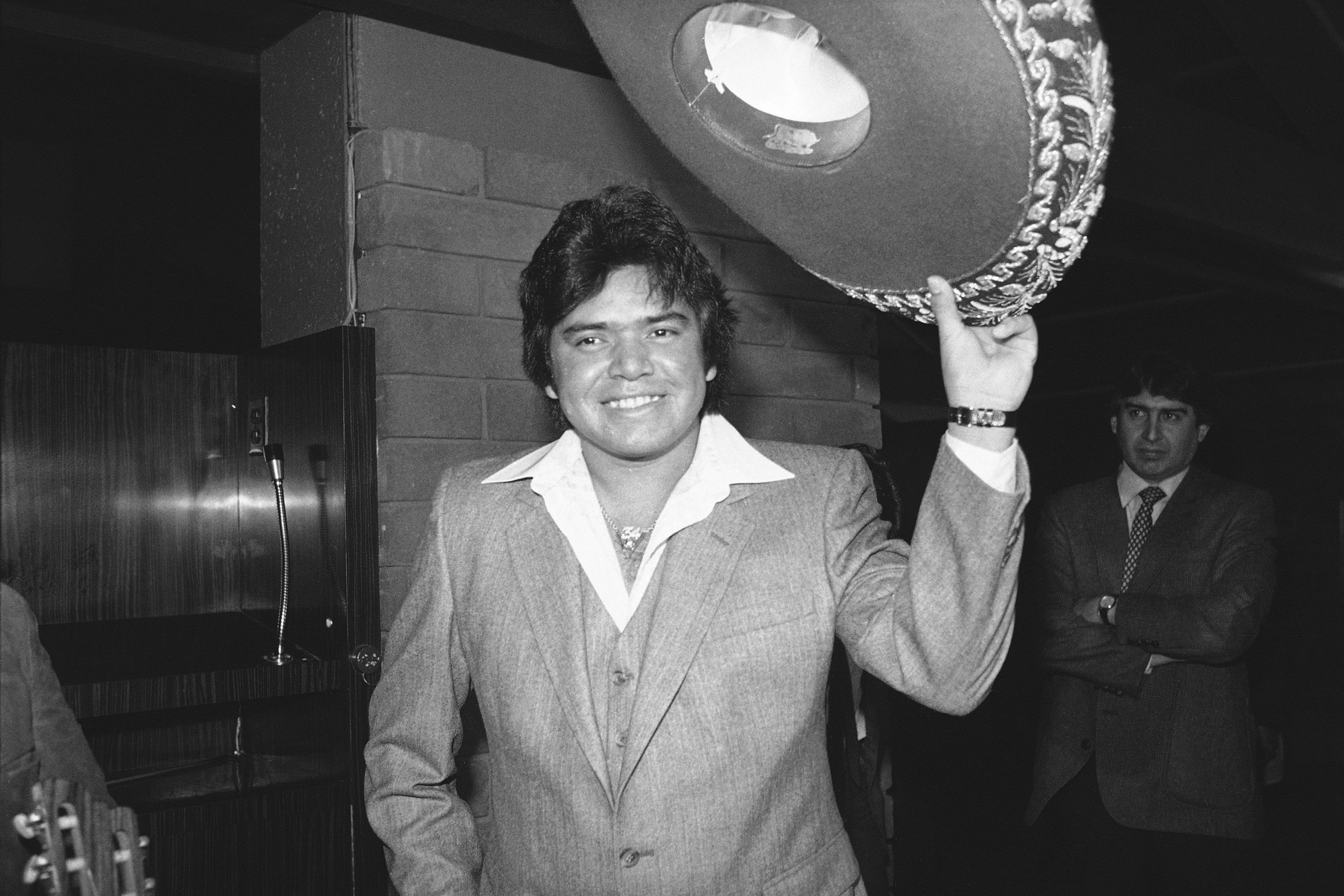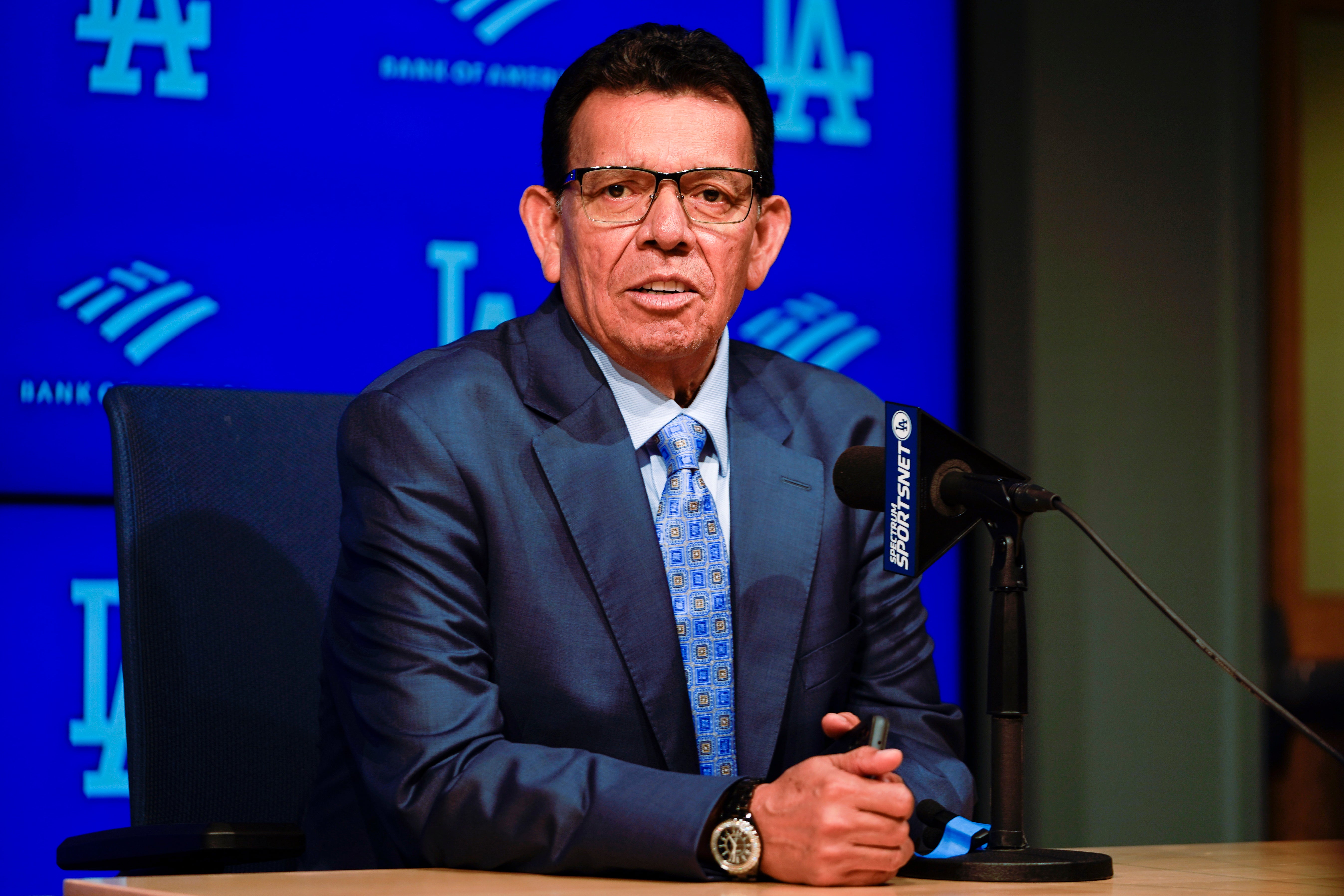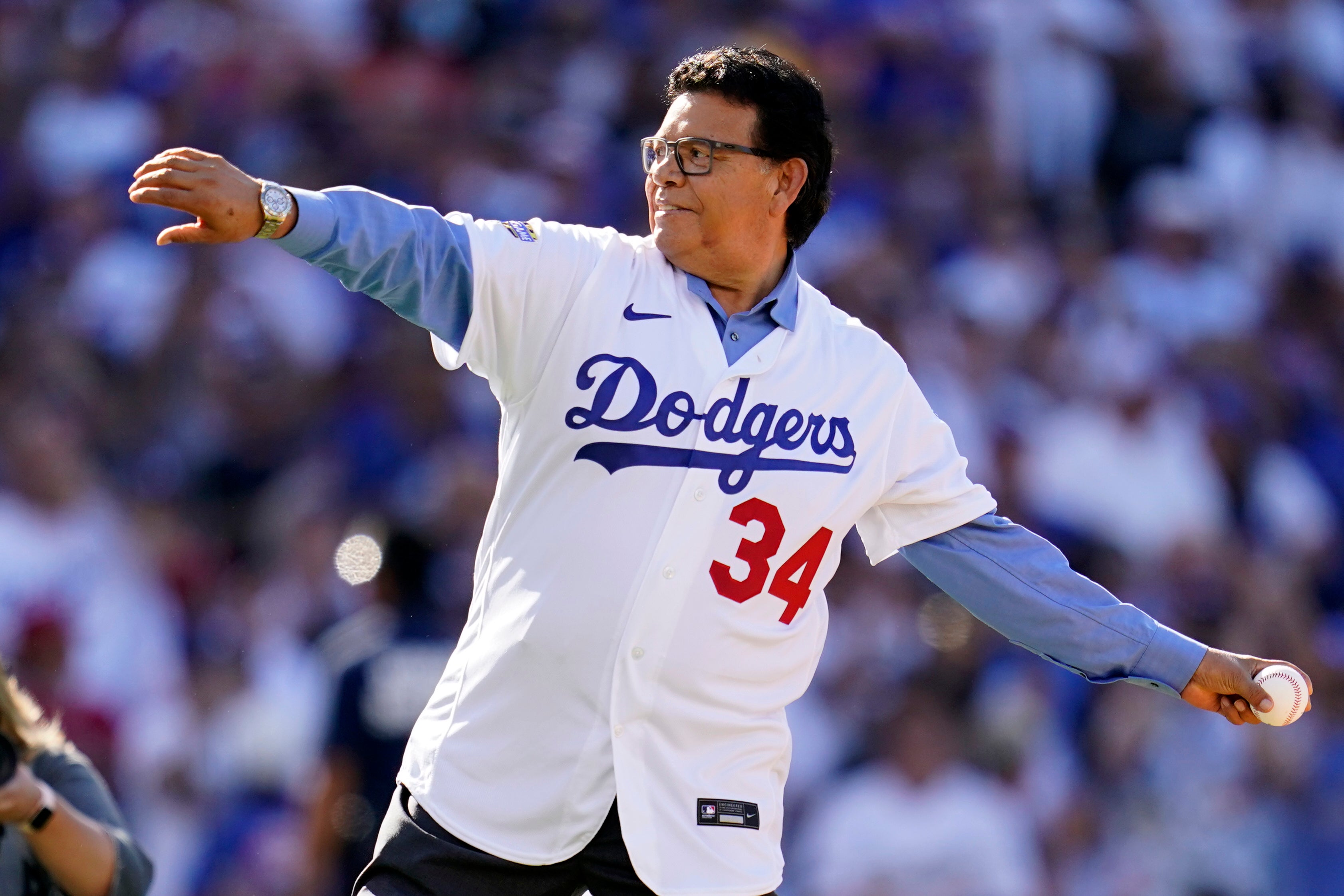Fernando Valenzuela, baseball star who inspired ‘Fernandomania’, dies aged 63
Valenzuela was a pitching icon for the Los Angeles Dodgers throughout the 1980s and later became a Spanish-language broadcaster for the team

Your support helps us to tell the story
From reproductive rights to climate change to Big Tech, The Independent is on the ground when the story is developing. Whether it's investigating the financials of Elon Musk's pro-Trump PAC or producing our latest documentary, 'The A Word', which shines a light on the American women fighting for reproductive rights, we know how important it is to parse out the facts from the messaging.
At such a critical moment in US history, we need reporters on the ground. Your donation allows us to keep sending journalists to speak to both sides of the story.
The Independent is trusted by Americans across the entire political spectrum. And unlike many other quality news outlets, we choose not to lock Americans out of our reporting and analysis with paywalls. We believe quality journalism should be available to everyone, paid for by those who can afford it.
Your support makes all the difference.Fernando Valenzuela, the Mexico-born baseball phenom for the Los Angeles Dodgers who inspired “Fernandomania” while winning the NL Cy Young Award and Rookie of the Year in 1981, has died at the age of 63.
The Dodgers confirmed he died on Tuesday night at a Los Angeles hospital but did not provide the cause or other details. His death comes as the Dodgers prepare to open the World Series on Friday night at home against the New York Yankees and Major League Baseball commissioner Rob Manfred said Valenzuela would be honoured during the series at Dodger Stadium.
Valenzuela had left his role as a commentator for the Dodgers’ Spanish-language television broadcast in September without explanation and was reported to have been hospitalised earlier this month.
His commentary kept him as a regular at Dodger Stadium, where he held court in the press box dining room before games and remained popular with fans who sought him out for photos and autographs. “God bless Fernando Valenzuela!” actor and Dodgers fan Danny Trejo posted on X on Monday.
Valenzuela was one of the most dominant players of his era and a wildly popular figure in the 1980s, although he was never elected to the Baseball Hall of Fame. However, several significant artifacts from his career are part of the Cooperstown museum, including a signed ball from the no-hitter he threw in 1990.
“He is one of the most influential Dodgers ever and belongs on the Mount Rushmore of franchise heroes,” Stan Kasten, team president and CEO, said in a statement. “He galvanised the fan base with the “Fernandomania” season of 1981 and has remained close to our hearts ever since, not only as a player but also as a broadcaster. He has left us all too soon."


Valenzuela's rise from humble beginnings as the youngest of 12 children in Mexico and his feats on the mound made him hugely popular and influential in Los Angeles’ Latino community while helping attract new fans to MLB and that continued into his retirement.
“63 is way too young.... A piece of my childhood is gone,” actor and Access Hollywood co-host Mario Lopez posted on X. “Growing up as a Mexican kid one of the main reasons I'm a Dodgers fan is because of Fernando. ... Not only a great player, but a great man to the community. What a legend.”
In 1981, Valenzuela became the Dodgers’ opening day starter as a rookie after Jerry Reuss was injured 24 hours before his scheduled start. He shut out the Houston Astros 2-0 and began the season with an 8-0 record, including five shutouts, giving him a miniscule ERA (Earned Run Average) of 0.50.
Valenzuela ended his first year, which was shortened by a player’s strike, with a record of 13-7 and a superb 2.48 ERA and became the first player to win a Cy Young Award (given to the best pitcher in each league) and Rookie of the Year gong in the same season.
His performances created the delirium known as “Fernandomania” among Dodgers fans and ABBA’s hit "Fernando" would play as he warmed up on the mound.


He was an All-Star selection every year from 1981 to 1986, when he recorded 97 victories, 84 complete games, 1,258 strikeouts and posted a 2.97 ERA. He was 5-1 with a 2.00 ERA in eight postseason starts, while also earningd two Silver Slugger Awards (given to the best hitter at each position in each league) and a Gold Glove (given to the best fielder at each postion in each league).
Valenzuela's no-hitter on 29 June 1990, a 6-0 victory over the St. Louis Cardinals at Dodger Stadium, was an emotional career highlight. He struck out seven batters en route to the history-making performance. "If you have a sombrero, throw it to the sky!" legendary Hall of Fame broadcaster Vin Scully exclaimed as he completed the feat.
The left-handed Valenzuela was a better hitter than most other pitchers, and slugged 10 career home runs, but eventually his pitching was compromised by nagging shoulder problems that kept him out of the 1988 postseason, when the Dodgers won the World Series.
The team released Valenzuela just before the 1991 season and he went on to pitch for the then-California Angels, Baltimore Orioles, Philadelphia Phillies, San Diego Padres and St. Louis Cardinals.
He retired in 1997, with a career record of 173-153 and a 3.54 ERA across 17 seasons. He is the all-time MLB leader in wins and strikeouts (2,074) by a Mexican-born player and during 11 seasons with the Dodgers, he was 141-116 with a 3.31 ERA.

In 2003, Valenzuela returned to the Dodgers as the Spanish-language radio colour commentator for National League games and 12 years later, he switched to the colour commentator role on the team's Spanish-language TV feed.
In 2023, the Dodgers retired his No 34 jersey, having kept his number out of circulation since he last pitched for them in 1991. The team has a rule that requires a player to be in the Baseball Hall of Fame before having the Dodgers retire their number but they made an exception for Valenzuela and he was also named as part of the "Legends of Dodger Baseball" in 2019 and inducted into the team's Ring of Honour in 2023.
He is survived by his wife, Linda, who was a schoolteacher from Mexico whom he married in 1981, sons Fernando Jr and Ricky, daughters Linda and Maria and seven grandchildren.
The Associated Press
Join our commenting forum
Join thought-provoking conversations, follow other Independent readers and see their replies
Comments